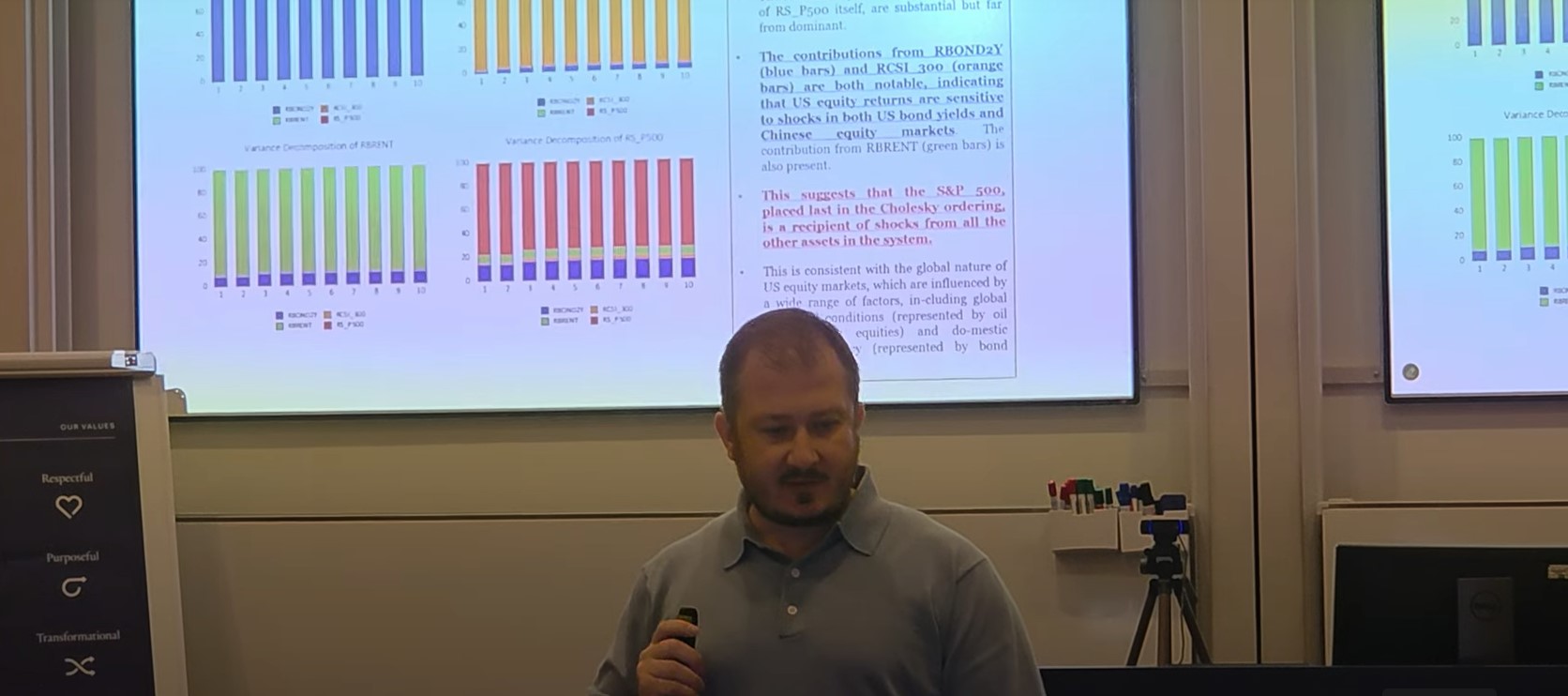Globalization at a Turning Point: Reassessing Trump’s Tariffs, Financial Markets, and Fukuyama’s “End of History” Thesis
Assoc. Prof. Dr. Caner Özdurak’s paper, presented at the University of Oxford’s 14th International Conference on the Restructuring of the Global Economy (ROGE), seeks—while tipping its hat to Francis Fukuyama’s “End of History” thesis heralding the triumph of liberal democracy—to set out the profound impact of the protectionist trade policies pursued during Donald Trump’s presidency on global financial markets.
Key Findings and Analysis
Dr. Caner Özdurak’s research shows that Trump’s tariffs significantly increased volatility in financial markets and materially altered investor expectations. Using a Vector Autoregression (VAR) model, the analysis finds that trade-policy shocks affect asset classes differently and explain a substantial share of S&P 500 volatility over the period studied. These shocks operate by raising uncertainty about investors’ perceptions of future economic growth and risk.
- Market Volatility: Export-dependent firms proved highly vulnerable to trade-related shocks and experienced heightened volatility in their equity valuations.
- Inflation and Bond Yields: The implementation of tariffs brought inflation concerns in its wake, prompting potential market reactions such as increases in bond yields.
- Historical Link: The study underscores that trade disruptions have historically been associated with financial crises. This highlights the potential of current trade policies to impact financial stability.
Reconsidering Fukuyama’s Thesis
Fukuyama’s thesis, which in the post–Cold War era proclaimed the ultimate victory of liberal democracy and free-market capitalism (though it has long been widely criticized in the literature and largely lost its currency, serving here more as a flavoring note), has come under serious test from Trump’s protectionist policies. By presenting empirical evidence that modern trade policies can undermine financial stability and endanger globalization’s presumed trajectory, the paper emphasizes the micro-level effects of major macro decisions. The findings suggest that the financial stability promised by liberal-democratic governance can be shaken by the impact of contemporary trade policies.
Full presentation:



